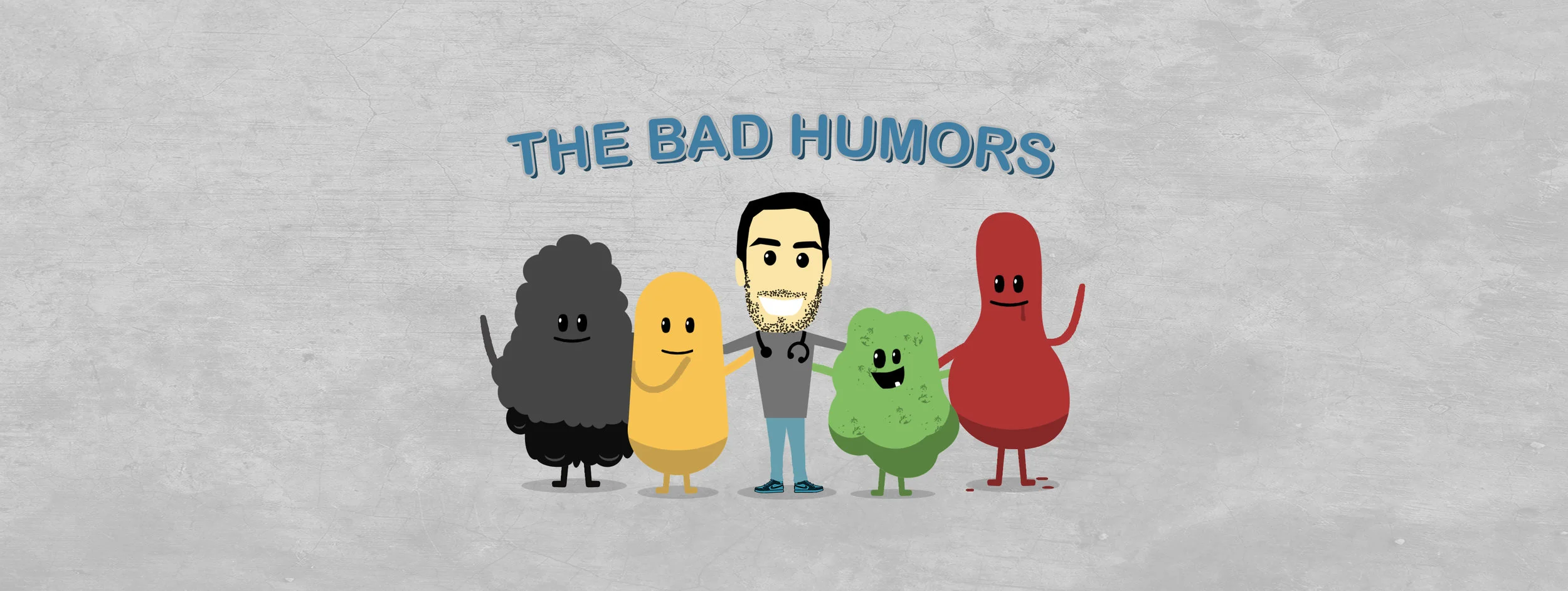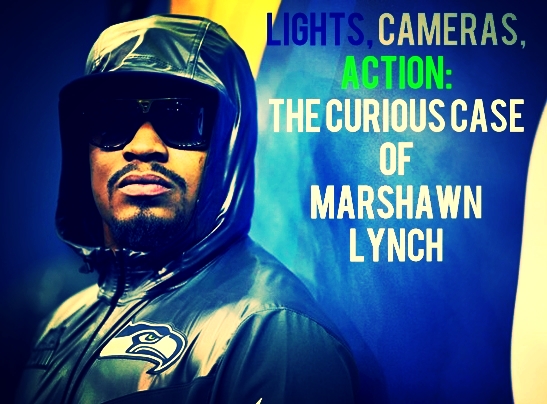Lights, Cameras, Action: The Curious Case of Marshawn Lynch
/The following is in no way evidence based. I have never met Marshawn and this is probably completely off base. That being said…
I’m on vacation this week. Most of it has largely been spent being sick in the luxurious confines of my office chair. Also if you haven’t heard yet, the Seahawks are in the Super Bowl. Those elements have created an oversaturation of Super Bowl coverage for myself. It’s not a bad thing but I’ve seen and heard everything to the point of near boredom.
Near boredom.
The one thing that has stood out to me this week is the curious case of Marshawn Lynch. For the past two media days, Marshawn has had press conferences of 6 and 7 minutes. The expected time for these press conferences?
Forty-five minutes.
This isn’t the first time Marshawn has given a curtailed interview but it’s the Super Bowl. America’s magnifying glass is out in full force and ESPN is in full-fledged TMZ mode for 2 weeks. I was showering on Tuesday (where I do my best work) and overheard 710 ESPN talk to John Clayton about the shortened interview. It’s probably the most angry I’ve ever heard him. He was livid not only at the fact that Lynch cut the interview short but also because he broke a deal he made with the NFL to talk to the media. A deal that had to be remade after he broke it the first time and was fined $50,000.
Of course with all my spare time this week I have also been able to go on Twitter quite a bit. I am currently following 420 people on twitter and probably 385 of them are Seahawk fans. The outpouring of support for Lynch has been unanimous. Nobody cares if he gives interviews. In the end, we are all a bunch of Al Davis’s. Just win baby and we’re all happy. But what was interesting was all of these people saying how Lynch had a social phobia or fear of public speaking. So that is my question for the day.
“Does Marshawn Lynch’s behavior meet criteria for a DSM diagnosis?”
With this exercise I’m going to look at some of the theories I’ve seen strewn about Twitter and see if their long distance diagnoses hold up. The first is social phobia, which is now known as social anxiety disorder (SAD) in DSM-V. In the DSM-V, the criteria for a SAD is that the “person must suffer significant distress or impairment that interferes with his or her ordinary routine in social settings, at work or school, or during other everyday activities.” The anxiety must be out of proportion to the actual situation and the symptoms must be persistent for six months or longer.
Well, this has definitely been going on for six months but really that’s where the diagnosis ends. This is not something that affects Marshawn’s ordinary activity. I suspect that when Beast Mode steps outside his front door in Oakland he doesn’t have throngs of reporters with their cameras in his mug. Even so, few would consider that ordinary activity. In addition, the anxiety must be out of proportion to the actual situation. I have a sneaky suspicion that the average joe would behave more like Michael Bay than Russell Wilson when placed in that environment.
Ok, so social anxiety disorder is out of the question.
Next up? Specific phobia. Even more specifically it would be the phobia of public speaking.
DSM-V criteria are the same as DSM-IV criteria in that there must be a “marked and persistent fear that is excessive or unreasonable, cued by the presence or anticipation of a specific object or situation.” The situation in Lynch’s case would be speaking in front of the media. Yes, he does seem to have an excessive objection to speaking with certain media. It’s unclear if this is a fear though. I would argue it’s more of a disdain. On top of that, he actually does quite well with certain media members.
Exhibit A:
Exhibit B:
and everyone’s favorite…
Exhibit C:
Pretty convincing I have to say, especially the latter two. I do recognize that the media interaction is on a smaller scale but it’s clear that he is not only comfortable but is engaging. He’s not simply answering questions more easily but being quirky, playful, and loving in front of media members.
Conclusion? I don’t think he has a specific phobia of public speaking or of the media either.
So what is it then? In my opinion, the issue can be glaringly obvious when placed into the context of his life history.
It’s an issue of trust.
The first five minutes of the E60 feature on Lynch gives great insight into Beast Mode’s psyche. With his father in and out of jail growing up, his mother and a small, close-knit community in Oakland essentially raised him. Lynch’s high school football coach, Delton Edwards, nailed it when he said “he don’t want people to let him down. It’s hard to get in that zone with him. If you can get in that little zone and that little shell? You’re good. He’ll love you for the rest of your life. But if you let him down? He holds grudges.
This quote was brought up to Lynch in the documentary by Jeffri Chadiha (who’s own scumbaggery will be ignored for the sake of the article).
Chadiha: “Coach said that one thing that he saw in you early on was that if you trusted somebody you’d do anything for then. But if you didn’t….”
Lynch: “F*** em”
After multiple arrests in Buffalo, Lynch undoubtedly read many scathing things about himself in the paper and on TV. Being called a “thug” and other synonymous terms in the media only further solidified the distrust Lynch had of the media as a whole. But again, it comes down to one’s own life history. Richard Sherman has recently gone through the same crossfire if not worse as Lynch did previously but it is something he has embraced because of his make-up.
Different make-up, different response. Both normal.
It makes sense that Lynch would trust the innocence of foreign reporters asking about candy, working with a charitable organization, or a former NFL player in Deion Sanders. While at the same time spurning the requests of those that likely wrote about his on and off the field failures. Lynch said it himself during the interview with Sanders. When asked, “you just don’t want to talk really?” Lynch replied with the now infamous:
“I’m just bout that action, boss”.
But the more poignant response was what he said just prior to that statement.
“I ain’t never seen no talkin’ win me nothing”
That last statement opens up a clear window into Lynch’s history. A history where his actions, not his words, largely determined his success and failures.
In the end, there is nothing psychologically wrong with Marshawn Lynch’s behavior with the media. He does not have a social anxiety disorder, social phobia, or a specific phobia. His attitude towards the media as a whole is an understandable response that many others would have, especially those who have shared similar experiences as he has. He is a man that emphasizes not lights. Not cameras.
But action.
Go Hawks!


